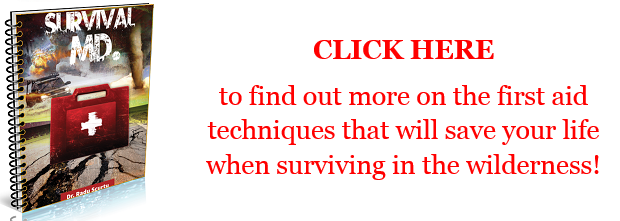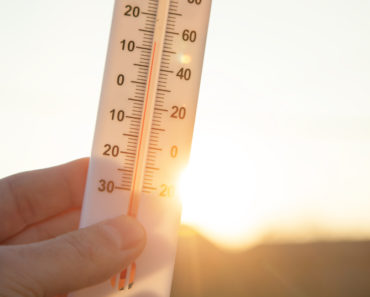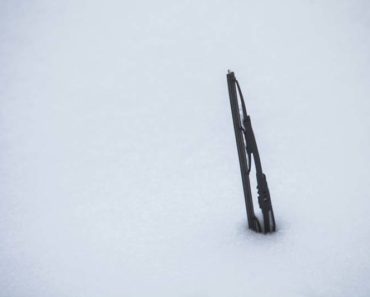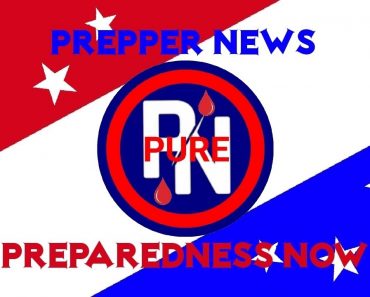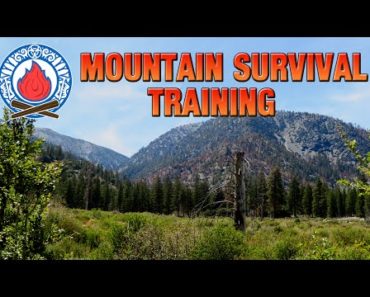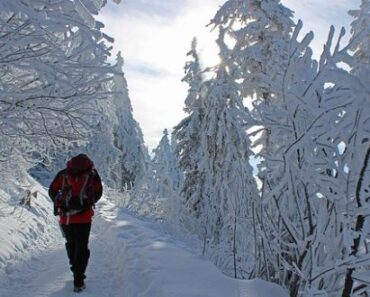Summer is the perfect excuse to spend time in the sun and enjoy the warm weather before things get cold again. Unfortunately, temperatures are climbing, and the heat is getting more dangerous every year. Surviving these high summer temperatures will get more difficult moving forward.
What sort of heat waves are scientists predicting? How can survivalists prepare for these climbing temperatures and prevent heat-related illnesses?
Heat Waves Could Harm Millions
Climate change and global warming have transitioned from a vague threat people used to get us to recycle our single-use plastics to a looming reality. Even if we stopped all emissions right now, it would still take decades for existing impacts to subside.
The planet will continue to get warmer, which means heat waves are going to become more common. According to the UN’s Intergovernmental Panel on Climate Change, severe and dangerous heat waves previously occurred once every 50 years. Another study showed that record-breaking heat events will be up to seven times more likely between now and 2050 — and 21 times more likely after that.
Heat waves could kill millions of people in the future if nothing is done to curb greenhouse gas emissions. Heat stress is a real problem in many parts of the world. The 2021 heat wave in the Pacific Northwest — a region known for its temperate summers — killed nearly 200 people. Homes in this region aren’t usually equipped with air conditioning, so there’s no option for climate control in the summer or when these extreme temperatures sweep through.
Imagine how much worse it will be for parts of the world closer to the equator. The Middle East is already experiencing temperatures upwards of 125 F (51 C) during summer. Dealing with this extreme heat might seem impossible without air conditioning, but it will become a necessity in an SHTF scenario.
How can a survivalist prevent heat-related illnesses without retreating to an air-conditioned house?
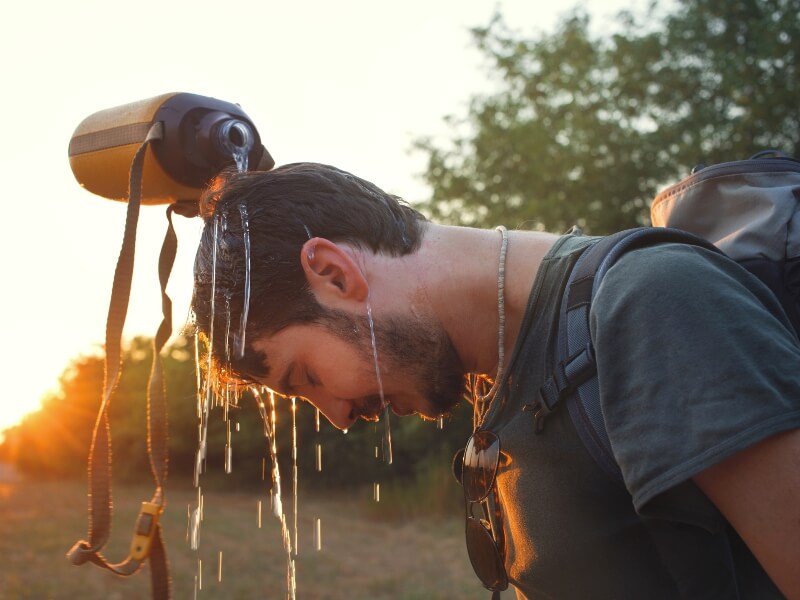
Recognize the Signs of Heat-Related Illness
The easiest way to prevent temperature-related illness is to be aware of heat stroke and heat exhaustion signs and symptoms. The former is severe and often fatal without medical intervention. The latter is more common but easier to treat without a trip to the ER.
Signs of Heat Exhaustion
Anyone spending time outdoors in hot environments is at risk for heat exhaustion, which is when the body responds to the loss of water and salt through excessive sweating. Symptoms of heat exhaustion can include:
- Headaches and dizziness
- Nausea
- Weakness and irritability
- Extreme thirst and heavy sweating
Treating mild heat exhaustion is as simple as removing yourself from the heat — indoors in an air-conditioned environment or outdoors in the shade — and rehydrating. Severe cases of heat exhaustion may require medical intervention.
Signs of Heat Stroke
Heat stroke is among the most severe heat-related illnesses. Overheating can cause body temperatures to quickly rise to fatal levels higher than 106 F. Around 31% of heat-related deaths are caused by exposure to natural heat. Symptoms of heat stroke include:
- Hot and dry skin
- Seizures
- Very high fever
- Altered mental state — confusion, slurred speech, etc.
- Loss of consciousness
Heat stroke can be fatal if it’s not treated. If you don’t have access to emergency medical services, work to cool the body as quickly as possible. Cold compresses, cool water, or even an ice bath can help bring temperatures down.
Signs of Dehydration
Working in the heat without proper hydration puts the body at risk for dehydration. Mild symptoms of dehydration include:
- Thirst
- Dark-colored and/or strong-smelling urine
- Dizziness, lightheadedness, or feeling overly tired
- Dry mouth and peeling lips
Even if you’re drinking water, it might not be enough. Make sure to up your fluid intake if you start showing signs of dehydration. Ensure you’re balancing your water intake with electrolyte drinks or taking salt tablets, so you don’t throw your body out of balance.
Be Aware of Risk Factors
Anyone who spends time in the heat, especially during the summer, is at risk for heat-related illnesses. That said, specific demographics are at greater risk. These include:
- Infants and children under the age of 4
- Seniors 65 and older
- Overweight and obese individuals
- Individuals who are ill
- People who are on specific medications
Falling into any of these categories doesn’t necessarily mean you need to stay inside all summer. Make sure you’re aware of your increased risk so you can take any necessary steps to prepare and prevent heat-related illness.
Stay Hydrated and Drink More Than Just Water
Hydration is probably your best tool for preventing heat-related illnesses like dehydration. The exact amount of water you need to drink will vary depending on your weight, gender, overall health, and time spent in the sun. On average, you’ll need six to eight cups of water or other fluids daily. If you’re sweating a lot or plan to be active, that number will climb. You will also need more hydration if you’re ill or experiencing a fever.
It’s also important to drink more than just water, especially when experiencing extreme temperatures or being active in the heat. Drinking a ton of water and nothing else can throw your body out of balance. In severe cases, this imbalance can result in water poisoning, or hyponatremia, when the sodium level in your blood becomes diluted. Hyponatremia can be fatal if untreated.
Disclaimer: This video content is for informational purposes only. Although the author and publisher have made every effort to ensure that the information is correct, the author and publisher do not assume and hereby disclaim any liability to any party for any loss, damage, or disruption caused by errors or omissions, whether such errors or omissions result from negligence, accident, or any other cause. The publisher and the author make no guarantees concerning the level of success you may experience by following the advice contained in this video.
Stay Out of the Sun and Wear Sunscreen
Standing in direct sunlight will cause you to sweat and eventually dehydrate, even if you’re not active. Staying out of the sun can help reduce your chances of experiencing a heat-related illness. If you can’t stay indoors or avoid the sun’s rays, try to schedule your outdoor activities to avoid the hottest hours of the day. This time might vary depending on where you live, but generally, it will fall between 11 a.m. and 2 p.m.
Make sure to wear sunscreen if you must be outside during the day. Experts recommend wearing at least SPF 30 and reapplying your sunscreen every 90 minutes or more often after towel-drying.
Dress Appropriately
It’s tempting to wear as little clothing as possible when temperatures rise, which puts you at risk of sunburns and other heat-related illnesses. Wear lightweight, light-colored clothing if you can’t avoid being outside during the day’s heat. The lighter colors won’t get as hot in the sun, and the material will allow for increased air circulation.
If possible, opt for clothing treated with a UV protectant to offer extra protection from the sun. It’s not the perfect solution, and it won’t protect anywhere that isn’t covered, but it can help keep you from ending up severely sunburned and dehydrated in a survival situation.
Monitor the Weather
This step might sound simple, but it’s something that will come in handy in the long run. Start learning how to monitor the weather without the aid of meteorologists or the weather apps on your phone.
Listening to birds or insects — who often quiet down during the heat of the day — can indicate the overall forecast. Investing in an inexpensive thermostat and barometer could give you more accurate readings than any weather app because they focus on your immediate area. Make sure you place your thermometer in an area that doesn’t get direct sunlight for the most accurate readings.
Take Frequent Breaks
Being out in the sun isn’t always avoidable. Make sure to take frequent breaks in the shade or indoors with air conditioning if you must be active during the hottest parts of the day. Take the time to cool off and rehydrate, so you aren’t increasing your risk of heat-related illnesses.
Following the same train of thought, ensure you avoid indoor areas that don’t have air conditioning or good ventilation. These spaces will only make your heat exposure worse.
Keep the Air Moving
A good breeze can be a blessing when it’s 100 degrees or more outside. Design your survival shelter so you can keep the air moving. This step could include fans if you have access to off-grid electricity or windows you can open to allow the breeze to move through your home.
Good ventilation can also improve indoor air quality. Sometimes the best thing you can do is open the windows and air out your space to get rid of dust and accumulated volatile organic compounds (VOCs).
Avoid Hot Foods
There’s nothing better than a hot meal when it’s cold outside, but it could make things worse during the summer. That’s especially true during extreme heat waves. Stick to cold foods whenever possible. Let your meal cool a bit before you start eating if you can’t avoid cooking. This delay will also allow you to cool off after standing over a hot stove.
Stay Cool This Summer
Summer heat waves will keep getting hotter, whether you’re near the equator or closer to the Arctic Circle. Take whatever steps you need to stay cool this summer and everyone moving forward so you can survive and thrive.

